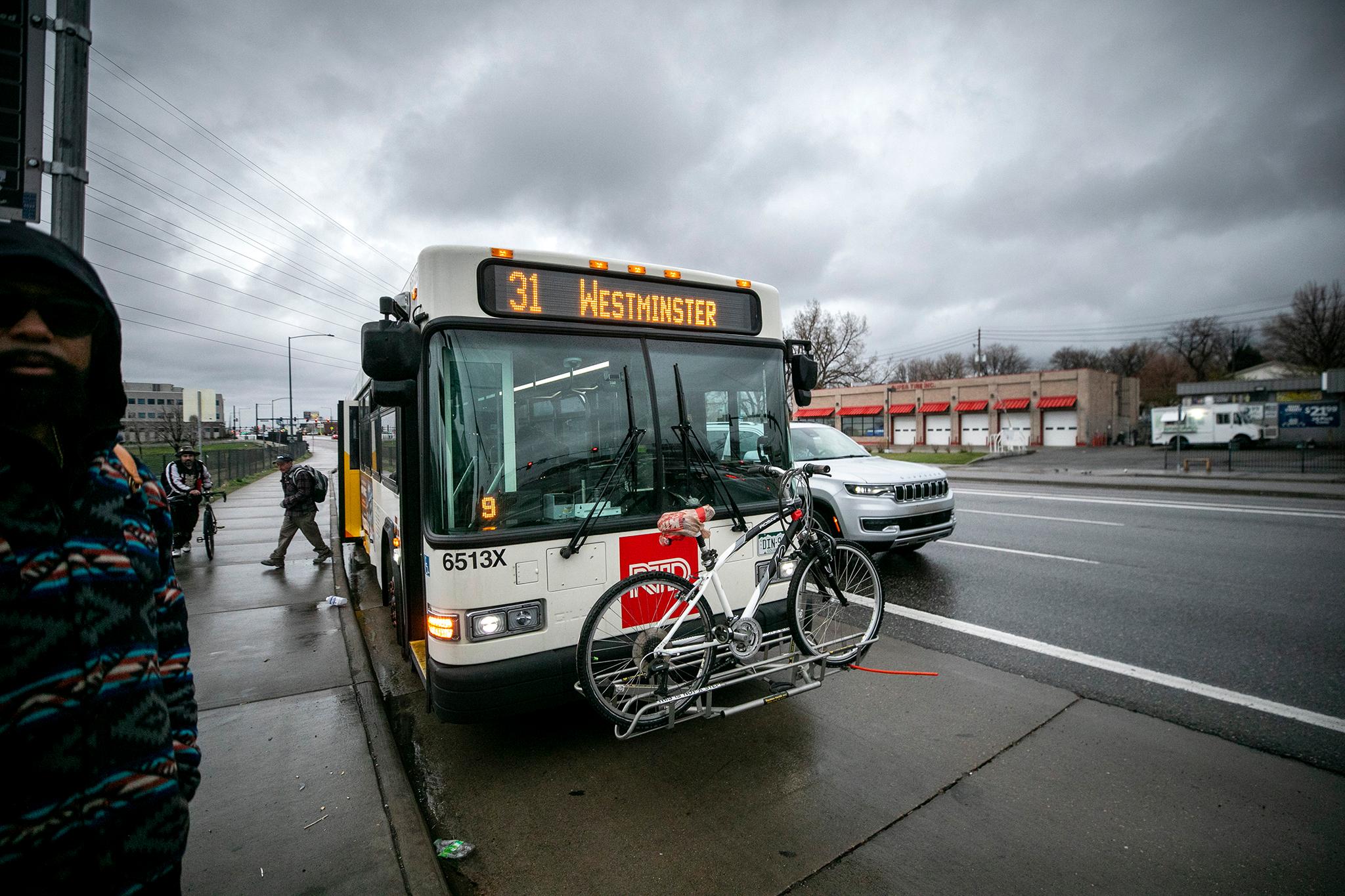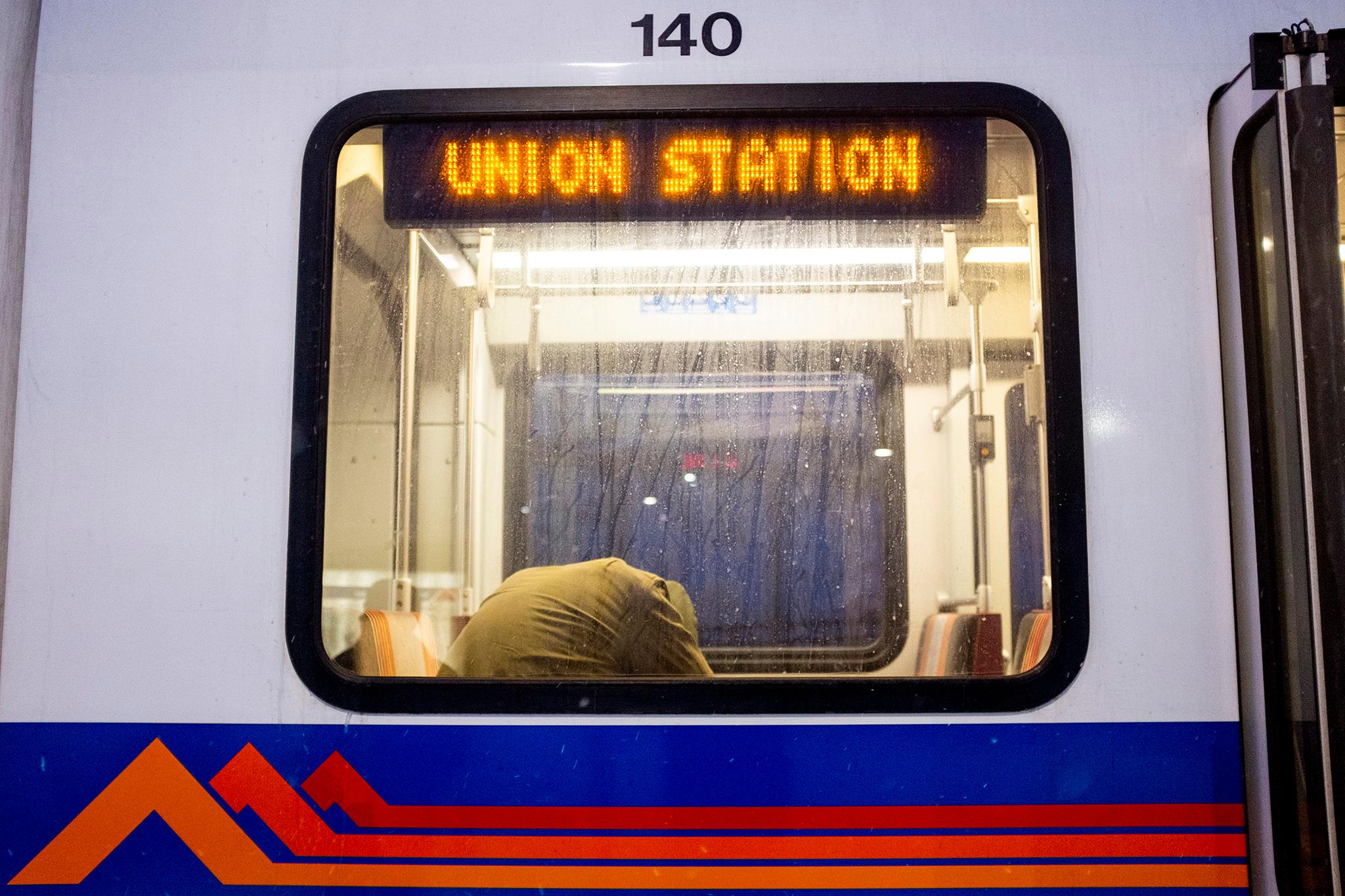The Regional Transportation District's board of directors on Tuesday approved a new passenger code of conduct it hopes will help make the agency's vehicles and stations feel safer.
The agency has been trying to address a rise in drug use and other "unwanted activities" since the pandemic began in 2020. RTD staff say the code of conduct update, dubbed "Respect the Ride," amounts to a new, simplified set of administrative rules the agency will ask its customers to abide by.
The revised rules are meant to emphasize "the expectation of mutual respect," RTD General Manager and CEO Debra Johnson told the board on Tuesday.
Advocates for civil liberties and people experiencing homelessness criticized an early version of the code that was first made public by Denverite. That would have explicitly banned people from riding indefinitely after their ticket expired, but that and most other controversial measures were dropped in April.
Among the new rules that survived are bans on people remaining on RTD property when it's apparent they aren't using its services, engaging in harassment, and using language that is violent or profane.
The board also approved changes to an associated suspension policy that gives RTD's police and security contractors more latitude to suspend people who violate the code of conduct.
"Our response to being able to provide a safe and welcoming transit environment is to ensure that chronic violators, those individuals, face something a bit stiffer," said RTD's Chief of Police Joel Fitzgerald.
Several board members offered significant amendments to the code and suspension policies, but most were voted down. They may be taken up in a future committee meeting.
The new rules come as RTD faces widespread demands for a safer system.
Since April, RTD staff have collected feedback from customers, its employees, and the general public on the new rules. Survey respondents named illegal drug use, threats and harassment as top concerns they want RTD to address. A majority of respondents also said they thought the new rules would support a safer transit environment.
Such thoughts were also reflected in public comments during the meeting from downtown residents, business interests, and some of RTD's own employees.
One light rail operator, Amanda Johnson, showed the board photographs of drug paraphernalia, beer cans, dirty underwear, human feces, and even a warm cup of pee she said she's had to clean up. Her boyfriend was an operator but quit recently, she said.
"He's not the first, and he's not the last," she said. "There are more operators looking to leave because of drug use."
Other train and bus operators told stories of being assaulted and said they feel unsupported and abandoned by agency leaders.
"Light rail should be a point of pride for the city like it once was," operator Andy Kaiser said.
Passenger Susan Melia told the board she carries a taser on her light rail commute to the Denver Tech Center. She said her colleagues and husband tell her to drive to work.
"But I'm adamant that I take the train because I feel it's so important that we stay true to what [public] transportation is meant to be," she said. "This is not meant to be a traveling shelter. This is meant to help us get people off the roads, to help with congestion."

Chelsea Primak with the African Community Center of Denver, a refugee resettlement agency, told the board that many of their clients no longer feel safe on RTD.
"We would see people continue to take RTD for years and years and years after they arrived here," Primak said. "And now, we see people, as soon as they can, borrowing money from friends, getting really bad loans, and buying a car as quickly as humanly possible."
Many speakers during the public comment also zeroed in on enforcement issues. James Flattum, with the advocacy group Greater Denver Transit, said many of the unwanted behaviors mentioned Tuesday already violate RTD's existing code. He cautioned that some speakers seemed to be expecting a different experience on RTD just because of the new code.
"It's difficult to see exactly where this code of conduct is going to deliver on that," he told the board. "Chiefly because there's a huge gap between the resources RTD has to enforce a safe transit system and what they need to do it."
Flattum told RTD leaders they should appeal to local and state leaders for support for more social workers, addiction specialists and law enforcement officers.
"RTD's system will not feel meaningfully more safe or welcoming until city partners step up to support their transit agency," he said.













